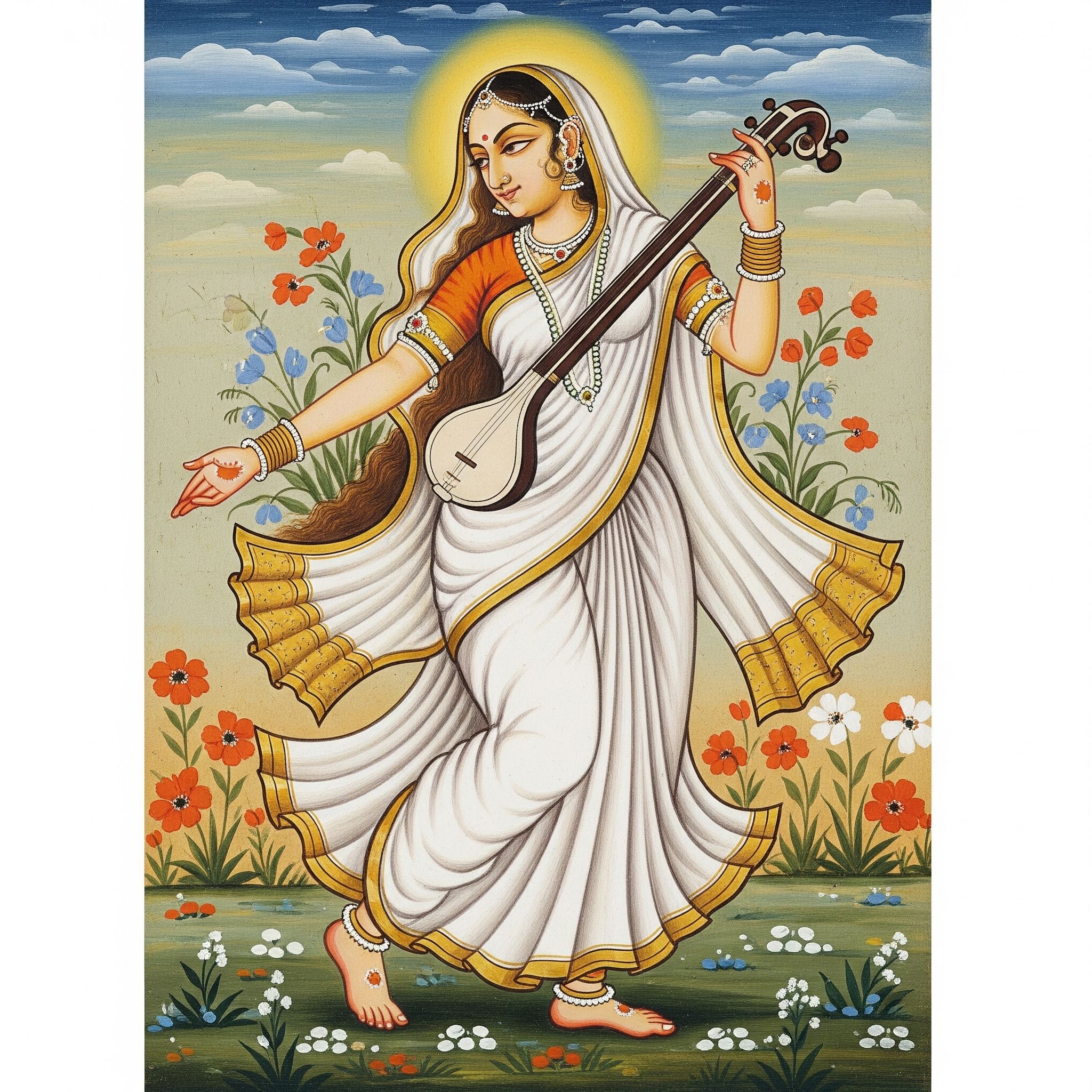Among the countless tales of devotion in the Indian spiritual tradition, few shine as brightly as the life of Mirabai—a symbol of unconditional love, spiritual defiance, and Bhakti (devotion) in its purest form.
Even today, centuries later, her voice echoes through the ages in divine bhajans like:
“Mere to Giridhar Gopal, doosaro na koi”
“Only Krishna is mine; I belong to none else.”
“Payoji maine Ram ratan dhan payo”
“I have received the priceless gem of Lord Rama’s name.”
These songs are not mere poetry—they are the outpouring of a heart completely immersed in God.
Born into a royal Rajput family around 1498 in Rajasthan, young Meera was unlike any other child. One day, she saw a grand wedding procession and asked her mother innocently, “Whom will I marry?”
Her mother, amused, replied, “You will marry Lord Krishna.” What was said playfully, Meera absorbed with absolute seriousness and sincerity. From that day onward, Krishna was not just her God—He was her beloved, her husband, her soul’s eternal companion.
Meera was eventually married into the royal family of Mewar, to Prince Bhoj Raj. But her heart belonged elsewhere. She lived in the palace, but her spirit danced in Vrindavan with Krishna. Her devotion, however, brought ridicule and threats. She would sing and dance before the idol of Krishna, often mingling with saints and sadhus, breaking all norms of royal decorum. Legends say that her in-laws tried to kill her—offering her poison, sending her a snake in a basket, or a bed of thorns—but each time, miracles saved her – the poison turned into nectar, the snake transformed into a garland, the thorns into lotus petals. Through it all, Meera sang on—fearless, unshaken.
After the death of her husband, the pressure to conform became unbearable. Rather than bend, Meera left the palace, renouncing her royal life. She roamed barefoot from Chittorgarh to Vrindavan, and finally to Dwarka, singing the name of Krishna. Clothed in simple white, carrying only a tambura and her love, she lived as a wandering saint, spending her days in devotion and singing bhajans until her last breath. Some say she merged into Krishna’s idol at Dwarka, never to be seen again—a soul finally united with her eternal beloved.
Ancient lore of Vrindavan speaks of Madhvi, a girl from a past life who was married to a man from Vrindavan during Krishna’s childhood.
Before the wedding, her mother warned, “Do not look at Krishna, or you’ll fall hopelessly in love with Him.”
When Madhvi’s palki passed through Vrindavan, the playful Krishna entered it. Madhvi, remembering her mother’s words, covered her face and refused to even glance at Him.
The child Krishna, hurt, said:
“You will spend a lifetime yearning to meet Me.”That yearning became Meera’s destiny in her next life—a soul born to burn in love, to live in longing, and to become an immortal voice of divine madness.
Mirabai’s life is not just a story. It is a movement, a poetic revolution, a mirror to the soul’s yearning for the divine. Her bhajans are still sung today—across villages, temples, concert halls, and hearts.
She defied society, broke boundaries of gender and class, and showed the world that true love knows no rules—only surrender.
Mirabai lives on—not in statues or palaces, but in every voice that sings to Krishna with love and longing.

